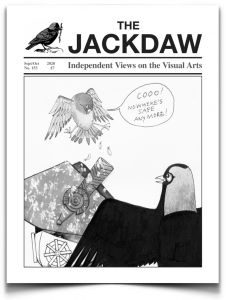Visiting Chichester for the first time in my life recently, I was much struck by the modern building at Chichester Cross, admittedly not nearly as bad as the unbelievably terrible Festival Theatre but nevertheless more than sufficient to spoil the townscape. Any jobbing builder of the 18th century would have done a much better job than any British architect of today. If I had my way, I’d close the schools of architecture and outlaw the Royal Institute of British Architects.
The ruination of every British townscape in fashion similar to or worse than that of Chichester Cross seems programmatic, if not outright conspiratorial. It is as if British architects, angry at or humiliated by their own lack of ability, had sought deliberately to besmirch the work of their more able, if untrained, predecessors. Unable to create, British architects can at least destroy. They have done so with a remarkable thoroughness.
Of course, you get used to what you have to live with. British architecture is like a bad smell, after a time you don’t notice it. Not that our neighbours, the French, are very much better; indeed, I think that in some respects they are even worse. But they have smashed up their towns rather less than have we, perhaps because there are more of them to smash up.
My wife tells me to calm down whenever I see some act of architectural vandalism; what is done is done, she says, and cannot be undone. No doubt this is sage advice, from the point of view of reaching a state of personal contentment; and yet I find it impossible to follow it. As La Rochefoucauld said, it is easier to give good advice than to take it.
I once suggested on air to a town councillor that his council had given permission for the construction of several hideous buildings in the midst of multi-secular beauty because of corruption. They had been paid off, I said.
The councillor was furious, even though I was referring to past councils and councillors, not the present crop of nonentities.
‘Are you saying the council is corrupt?’ he spluttered.
‘Don’t you realise,’ I said, ‘that this is the charitable interpretation? If councillors take money it is not very glorious, no doubt, but it is at least something that we can all understand, because we all like money. But if they did it because they thought it was right, because they liked the buildings… no, no, I can’t think as badly of them as that.’
In print, I suggested after the war with Serbia that we turn our cruise missiles on our own buildings, so many of which ought to be demolished. I suggested as a first target the Gifford Hotel in Worcester, a hotel of the early-Ceausescu style built in the vicinity of the cathedral on the site of demolished 18th century buildings.
The unfortunate manager of this vile establishment was asked on to the radio with me.
‘You have to remember,’ he said, ‘that it was built in the 1960s.’
‘That is what I am complaining of.’
‘Have you ever been in it?’
‘I don’t need to go in it. I can see it’s terrible.’
‘What if you came and I gave you lunch?’
‘What has that got to do with it?’ I asked.
But of course, he was right, it had everything to do with it. Freelunchism is, de facto, our ruling ideology.


